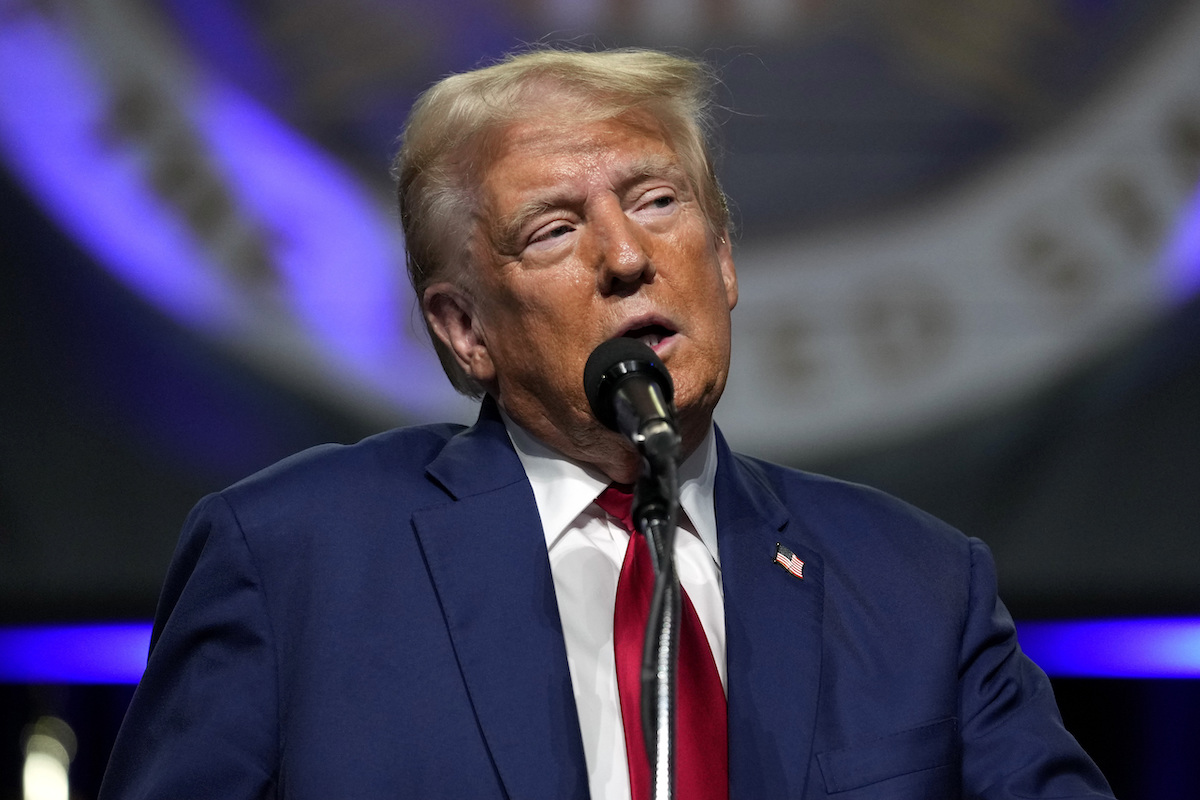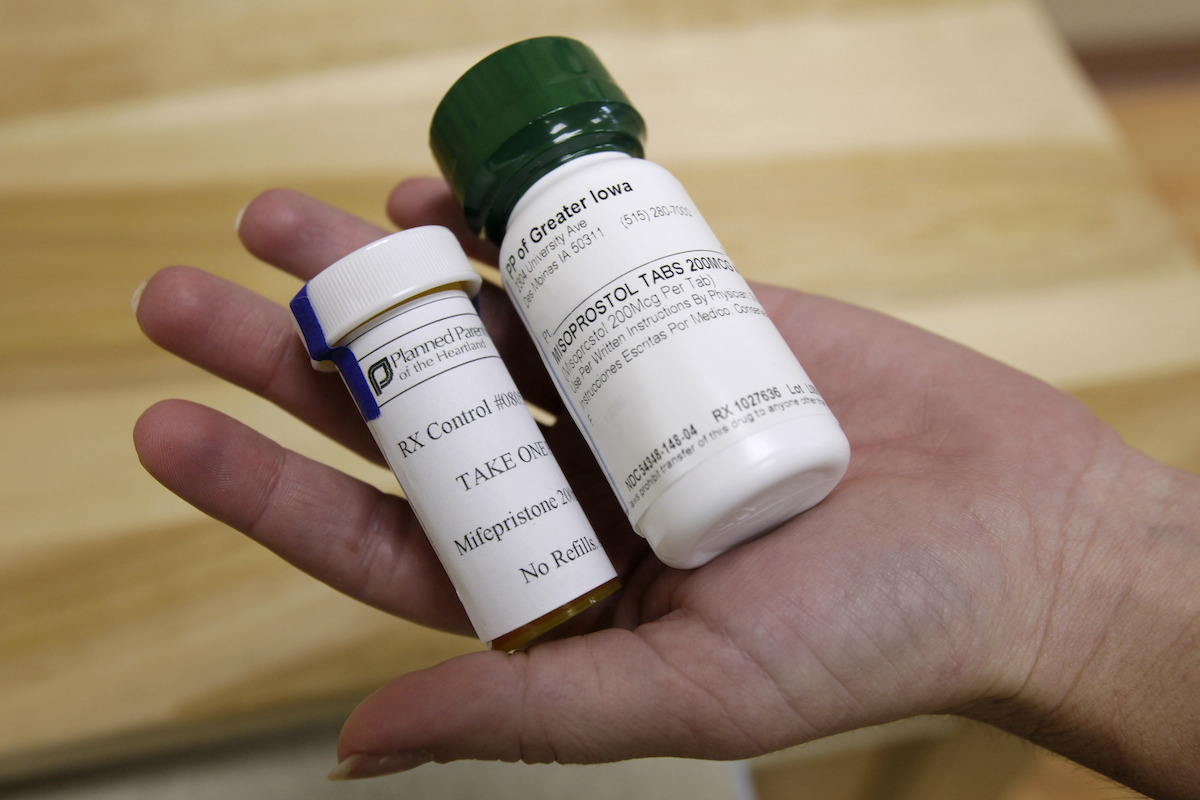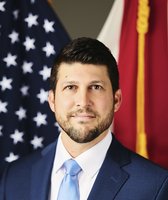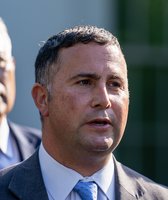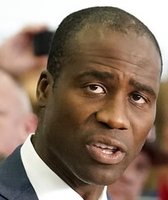Stand up for the facts!
Our only agenda is to publish the truth so you can be an informed participant in democracy.
We need your help.
I would like to contribute
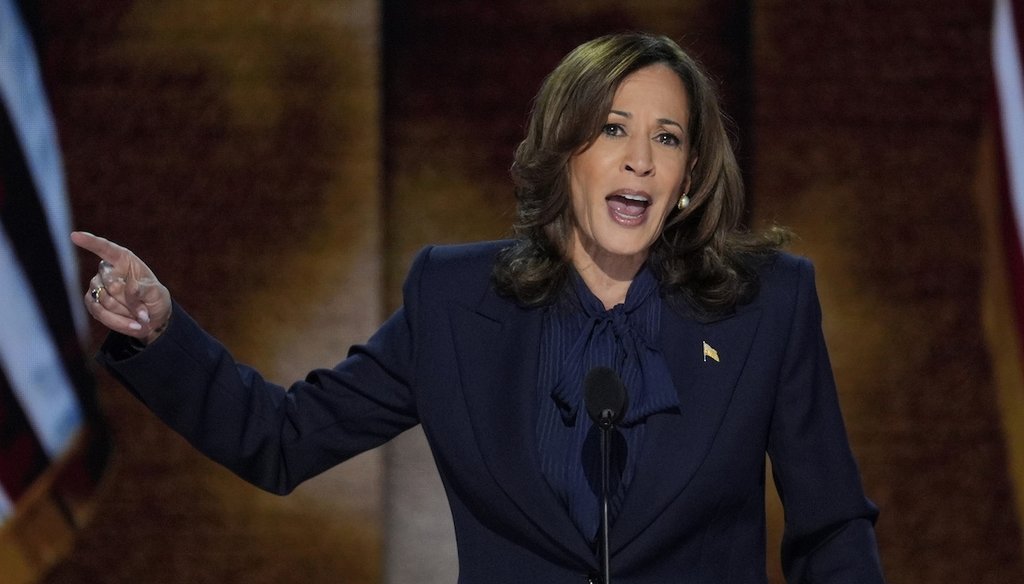
Vice President Kamala Harris speaks Aug. 22, 2024, during the Democratic National Convention in Chicago. (AP)
If Your Time is short
-
Since April, former President Donald Trump has said he believes abortion legislation should be “left up to the states” and told reporters that he wouldn’t sign a national ban.
-
As president, he endorsed a 20-week national abortion ban that House Republicans backed. Before he adopted his leave-it-to-the-states approach in the 2024 campaign, Trump floated support for 15- or 16-week federal abortion bans.
Several Democratic National Convention speakers warned Americans that former President Donald Trump would limit abortion access if he returned to the White House — regardless of what he says on the matter.
"As part of his agenda, (Trump) and his allies would enact a nationwide abortion ban, with or without Congress," Harris said Aug. 22 after she accepted her party’s nomination for president in Chicago.
On the convention’s first night, President Joe Biden said, "You know Trump will do everything he can to ban abortion nationwide. Oh, he will."
In an interview Aug. 25 on NBC’s "Meet the Press," Republican vice presidential nominee Sen. JD Vance said he can "absolutely commit" that Trump would not impose a federal abortion limit if he wins, and that Trump has been "clear" on the topic.
"Donald Trump’s view is that we want the individual states and their individual cultures and their unique political sensibilities to make these decisions, because we don’t want to have a nonstop federal conflict over this issue," Vance said.
Trump has said since April that abortion regulation should be left to the states.
For almost just as long, Harris has said she simply doesn’t believe Trump’s change of perspective.
"Trump wants us to believe he will not sign a national ban," Harris said May 1 in Jacksonville, Florida, the day the state’s six-week abortion ban took effect. "Well, I say, enough with the gaslighting. The great Maya Angelou once said, ‘When someone tells you who they are, believe them the first time.’"
Democrats who agree with Harris have cited Trump’s history on abortion and his boasts about appointing three Supreme Court justices who helped overturn Roe v. Wade.
Trump’s history on the policy is mixed. In the weeks before his April announcement, Trump had floated 15- and 16- week national cutoffs for abortion — which would lengthen access in some states and reduce it in others. In his first year as president, and five years before the Supreme Court’s Roe reversal, Trump supported legislation for a 20-week abortion ban.
Here’s what we know about Trump’s past support and current distancing from a one-size-fits-all abortion policy.
Trump’s "ban" journey
Until recent months, Trump sounded open to a national cutoff.
As president in 2017, he endorsed a 20-week national abortion ban the Republican-led House had approved. (Fetal viability, when the fetus is able to survive outside the womb, is typically considered to be about 24 weeks of pregnancy. Roe v. Wade allowed access to that point, with health exceptions.) Trump promised anti-abortion groups he would sign a bill from Congress that would impose the 20-week ban. The bill failed to earn 60 votes needed to beat a Democratic Senate filibuster in 2018.
Since the Supreme Court overturned Roe v. Wade in June 2022, 18 states have banned abortion, restricted abortion with some exceptions, or banned it after six weeks of pregnancy, when many women don’t yet know they are pregnant. When Republicans underperformed in the 2022 midterm elections, exit polls showed that voters in battleground states ranked abortion as the most important issue affecting their voting.
Trump came to view strict anti-abortion measures as a political liability for Republicans and his own reelection hopes. In September 2023, Trump called Florida’s six-week law, signed by Republican presidential primary opponent Gov. Ron DeSantis, "a terrible mistake." In April, Trump said Arizona’s Supreme Court went too far by allowing a Civil War-era abortion ban to take effect; state lawmakers repealed the measure, and voters will decide on a constitutional right to abortion up to fetal viability in November, up from a 15-week cutoff.
In February, The New York Times reported that Trump floated a 16-week nationwide abortion ban to his advisers and allies. The report quoted two unnamed people who said Trump liked the idea of a 16-week ban with three exceptions, in cases of rape, cases of incest or to save the pregnant woman’s life.
In a March 19 radio interview, Trump considered a 15-week policy: "The number of weeks now, people are agreeing on 15. And I’m thinking in terms of that. And it’ll come out to something that’s very reasonable. But people are really, even hard-liners are agreeing, seems to be, 15 weeks seems to be a number that people are agreeing at."
On April 8, Trump released a Truth Social video with a new position that states should decide abortion rules.
"The states will determine by vote or legislation, or perhaps both. And whatever they decide must be the law of the land, or in this case the law of the state," Trump said. "Many states will be different, many will have a different number of weeks, or some will have more conservative than others and that’s what they will be."
Trump has maintained that view through summer.
During his June 27 debate with Biden on CNN, Trump said states were now "making their own decisions" and "right now the states control it."
"It's going to be the vote of the people and it's a state vote," Trump said during a July 27 rally in St. Cloud, Minnesota. "It's the way it was supposed to be. It should have never been in the federal government."
What Trump said about signing a national ban
Since April, journalists have tried to clarify whether Trump would sign or veto a national abortion limit from a Republican-controlled Congress.
Trump has dismissed the possibility of one reaching his desk.
On April 10, Trump gave a brief "no" when reporters on an airport tarmac asked whether he would sign a national abortion ban.
In an April 12 interview for Time magazine, reporter Eric Cortellessa asked Trump whether he would veto any bill that federally restricts abortions.
"You don’t need a federal ban. We just got out of the federal," Trump said. "Florida is going to be different from Georgia and Georgia is going to be different from other places."
When asked again, Trump said he would never have the chance to veto a bill, because "it won’t happen," citing the insurmountable filibuster.
"You're not going to have it for many, many years, whether it be Democrat or Republican. Right now, it’s essentially 50-50. I think we have a chance to pick up a couple, but a couple means we're at 51 or 52. We have a long way to go," Trump said.
When Cortellessa pressed Trump again, Trump repeated "it’ll never happen" and that "it’s about states’ rights" and "getting abortion out of the federal government."
As the exchange ended, Cortellessa mentioned House Republican support of the Life at Conception Act, which says the right to life starts at "the moment of fertilization," and asked whether Trump would veto the bill.
"I don’t have to do anything about vetoes, because we now have it back in the states," Trump said. "They’re gonna make those determinations."
On "Meet the Press" on Aug. 25, host Kristen Welker pressed Vance on whether Trump would veto a federal abortion ban from Congress.
Vance: "I want to be very clear he would not support it."
Welker: "But would he veto it?"
Vance: "Yeah, I mean I think if you’re not supporting it as the president of the United States, you fundamentally would have to veto it."
Welker: "So he would veto a federal abortion ban?"
Vance: "I think he would."
Other ways Republicans might try to ban abortion under Trump
When Democrats, including Harris, say Trump could ban abortion "without Congress," they are referring to efforts to ban mailing abortion materials, restrict abortion medication and enact fetal personhood laws.
Trump has not offered direct support of these ideas.
Executive actions that could limit abortion include enforcing the Comstock Act — a 19th century law that bans the mailing of "obscene" materials — that could prohibit sending abortion medication and surgical equipment used in abortions anywhere in the country.
On Aug. 19, Trump told CBS News he wouldn’t use the law to ban mailing abortion pills. "No, we will be discussing specifics of it, but generally speaking, no," he said.
"You would not enforce the Comstock Act?" the reporter repeated.
"I would not do that," Trump said.
Reporters asked Trump on Aug. 9 whether he would direct the Food and Drug Administration to revoke access to mifepristone, the first of two pills used in medication abortions. Abortion pills are used in more than 60% of U.S. abortions.
Trump’s answer was hard to parse: "You can do things that will be, that would supplement, absolutely. And those things are pretty open and humane. But you have to be able to have a vote."
Trump has said that the Supreme Court "approved" mifepristone in June and he would enforce its decision. But the court didn’t bless the pill’s FDA approval; it rejected a legal challenge over procedural grounds, so the court could face the question again.
Democrats have also pointed to the Republican National Committee’s 2024 platform, which says "we believe that the 14th Amendment to the Constitution of the United States guarantees that no person can be denied Life or Liberty without Due Process, and that the States are, therefore, free to pass Laws protecting those rights."
Reproductive health experts say this language supports states establishing fetal personhood laws under the 14th Amendment, which would give citizenship rights to fertilized eggs, embryos and fetuses. If courts agree with these state laws, it could outlaw abortion and restrict access to in vitro fertilization across the U.S.
We have not seen Trump weigh in on the 14th Amendment language, though his allies drafted it; this statement is not reflected on his core campaign promises.
RELATED: All of our fact-checks on abortion including statements by Trump
PolitiFact Researcher Caryn Baird contributed to this report.
Our Sources
The White House, Remarks by Vice President Harris at Sigma Gamma Rho Sorority, Incorporated’s 60th International Biennial Boule, July 31, 2024
The White House, Remarks by Vice President Harris on the Fight for Reproductive Freedoms, May 1, 2024
PolitiFact, Kamala Harris fact-check: How accurate was her 2024 DNC speech in Chicago?, Aug. 22, 2024
The White House, Remarks by President Biden During Keynote Address at the Democratic National Committee Convention | Chicago, IL, Aug. 19, 2024
Truth Social, Donald Trump video, April 8, 2024
The Hill, Trump says he wouldn’t sign a national abortion ban, April 10, 2024
X post, April 10, 2024
Time magazine, How Far Trump Would Go, April 30, 2024
Time magazine, Read the Full Transcripts of Donald Trump’s Interviews With TIME, April 30, 2024
The Washington Post, With Trump’s backing, House approves ban on abortion after 20 weeks of pregnancy, Oct. 3, 2017
Donald Trump letter, September 2016
Politico, Senate defeats Trump-backed 20-week abortion ban, Jan. 29, 2018
NBC News, Republicans say it's time for a wake-up call on abortion. Again., Nov. 8, 2023
Politico, ‘THE central issue’: How the fall of Roe v. Wade shook the 2022 election, Dec. 19, 2022
DonaldTrump.com, platform, Accessed Aug. 14, 2024
The New York Times, Trump Privately Expresses Support for a 16-Week Abortion Ban, Feb. 16, 2024
The Associated Press, Trump suggests he’d support a national ban on abortions around 15 weeks of pregnancy, March 20, 2024
YouTube, FULL SPEECH: President Trump Keynotes the Faith and Freedom Coalition's "Road to Majority, June 22, 2024
C-SPAN, CNN Presidential Debate, June 27, 2024
Republican National Committee 2024 Republican Party Platform, July 8, 2024
NBC, Meet the Press transcript, Aug. 25, 2024
The New York Times, Some in the Anti-Abortion Movement Want a New Deal With Trump, July 29, 2024
The New York Times, Trump Allies Plan New Sweeping Abortion Restrictions, Feb. 17, 2024
NOTUS, The Conservative Plan to Ban Abortion Without Congress, Jan. 19, 2024
Mother Jones, RNC Official: Nothing In Our Platform Says We Won’t Ban Abortion Nationwide, July 15, 2024
The 19th, RNC approves platform that would give rights to fetuses, endangering abortion, IVF, July 8, 2024
NPR, Why anti-abortion advocates are reviving a 19th century sexual purity law, April 10, 2024
CBS News, Trump says he'll accept election if results are "fair and free"; won't enforce Comstock Act Aug. 19, 2024
The Washington Post, Vance urged DOJ to enforce Comstock Act, crack down on abortion pills, July 17, 2024
Email interview, Sarafina Chitika spokesperson for the Harris campaign, Aug. 5, 2024
Email interview, Anna Kelly, national press secretary for the Republican National Committee, Aug. 5, 2024
Email interview, Cary Franklin, UCLA law professor who specializes in reproductive rights, Aug. 5, 2024
Phone interview, Mary Ziegler abortion historian and law professor at University of California, Davis, Aug. 5. 2024

